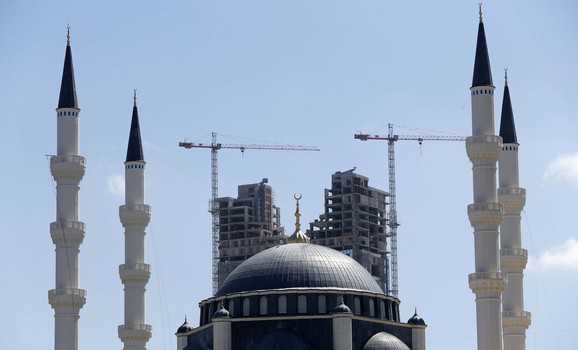Op-Ed Contributors
Turkey’s Gain Is Iran’s Loss
By ELLIOT HEN-TOV and BERNARD HAYKEL
Published: June 18, 2010
Princeton, N.J.
SINCE Israel’s deadly raid on the Turkish ship Mavi Marmara last month, it’s been assumed that Iran would be the major beneficiary of the wave of global anti-Israeli sentiment. But things seem to be playing out much differently: Iran paradoxically stands to lose much influence as Turkey assumes a surprising new role as the modern, democratic and internationally respected nation willing to take on Israel and oppose America.
While many Americans may feel betrayed by the behavior of their longtime allies in Ankara, Washington actually stands to gain indirectly if a newly muscular Turkey can adopt a leadership role in the Sunni Arab world, which has been eagerly looking for a better advocate of its causes than Shiite, authoritarian Iran or the inept and flaccid Arab regimes of the Persian Gulf.
Turkey’s Islamist government has distilled every last bit of political benefit from the flotilla crisis, domestically and internationally. And if the Gaza blockade is abandoned or loosened, it will be easily portrayed as a victory for Turkish engagement on behalf of the Palestinians. Thus the fiery rhetoric of Turkey’s prime minister, Recep Tayyip Erdogan, appeals not only to his domestic constituency, but also to the broader Islamic world. It is also an attempt to redress what many in the Arab and Muslim worlds see as a historic imbalance in Turkey’s foreign policy in favor of Israel. Without having to match his words with action, Mr. Erdogan has amassed credentials to be the leading supporter of the Palestinian cause.
While most in the West seem to have overlooked this dynamic, Tehran has not. President Mahmoud Ahmadinejad used a regional summit meeting in Istanbul this month to deliver an inflammatory anti-Israel speech, yet it went virtually unnoticed among the chorus of international condemnations of Israel’s act. On June 12 Iran dispatched its own aid flotilla bound for Gaza, and offered to provide an escort by its Revolutionary Guards for other ships breaking the blockade.
Yet Hamas publicly rejected Iran’s escort proposal, and a new poll by the Palestinian Center for Policy and Survey Research found that 43 percent of Palestinians ranked Turkey as their No. 1 foreign supporter, as opposed to just 6 percent for Iran.
Turkey has a strong hand here. Many leading Arab intellectuals have fretted over being caught between Iran’s revolutionary Shiism and Saudi Arabia’s austere and politically ineffectual Wahhabism. They now hope that a more liberal and enlightened Turkish Sunni Islam — reminiscent of past Ottoman glory — can lead the Arab world out of its mire.
You can get a sense of just how attractive Turkey’s leadership is among the Arab masses by reading the flood of recent negative articles about Ankara in the government-owned newspapers of the Arab states. This coverage impugns Mr. Erdogan’s motives, claiming he is latching on to the Palestinian issue because he is weak domestically, and dismisses Turkey’s ability to bring leadership to this quintessential “Arab cause.” They reek of panic over a new rival.
Turkey also gained from its failed effort, alongside Brazil, to hammer out a new deal on Iran’s nuclear program. The Muslim world appreciated Turkey’s standing up to the United States, and in the end Iran ended up with nothing but more United Nations sanctions.
In taking hold of the Palestinian card, Prime Minister Erdogan has potentially positioned Turkey as the central interlocutor between the Islamic/Arab world and Israel and the West, and been rewarded with tumultuous demonstrations lauding him in Ankara and Istanbul. Meanwhile, the streets of Tehran have been notably silent, with Mr. Ahmadinejad’s regime worried about public unrest during the one-year anniversary of last summer’s fraudulent elections.
Prime Minister Erdogan has many qualities that will help him gain the confidence of the Arab masses. He is not only a devout Sunni, but also the democratically elected leader of a dynamic and modern Muslim country with membership in the G-20 and NATO. His nation is already a major tourist and investment destination for Arabs, and the Middle East has long been flooded with Turkish products, from agriculture to TV programming.
With Turkey capturing the hearts, minds and wallets of Arabs, Iran will increasingly find it harder to carry out its agenda of destabilizing the region and the globe. For Americans, it may be hard to see the blessings in a rift with a longtime ally. But even if Turkey’s interests no longer fully align with ours, there is much to be gained from a Westernized, prosperous and democratic nation becoming the standard-bearer of the Islamic world.
Elliot Hen-Tov is a doctoral candidate and Bernard Haykel a professor of Near Eastern studies at Princeton.
